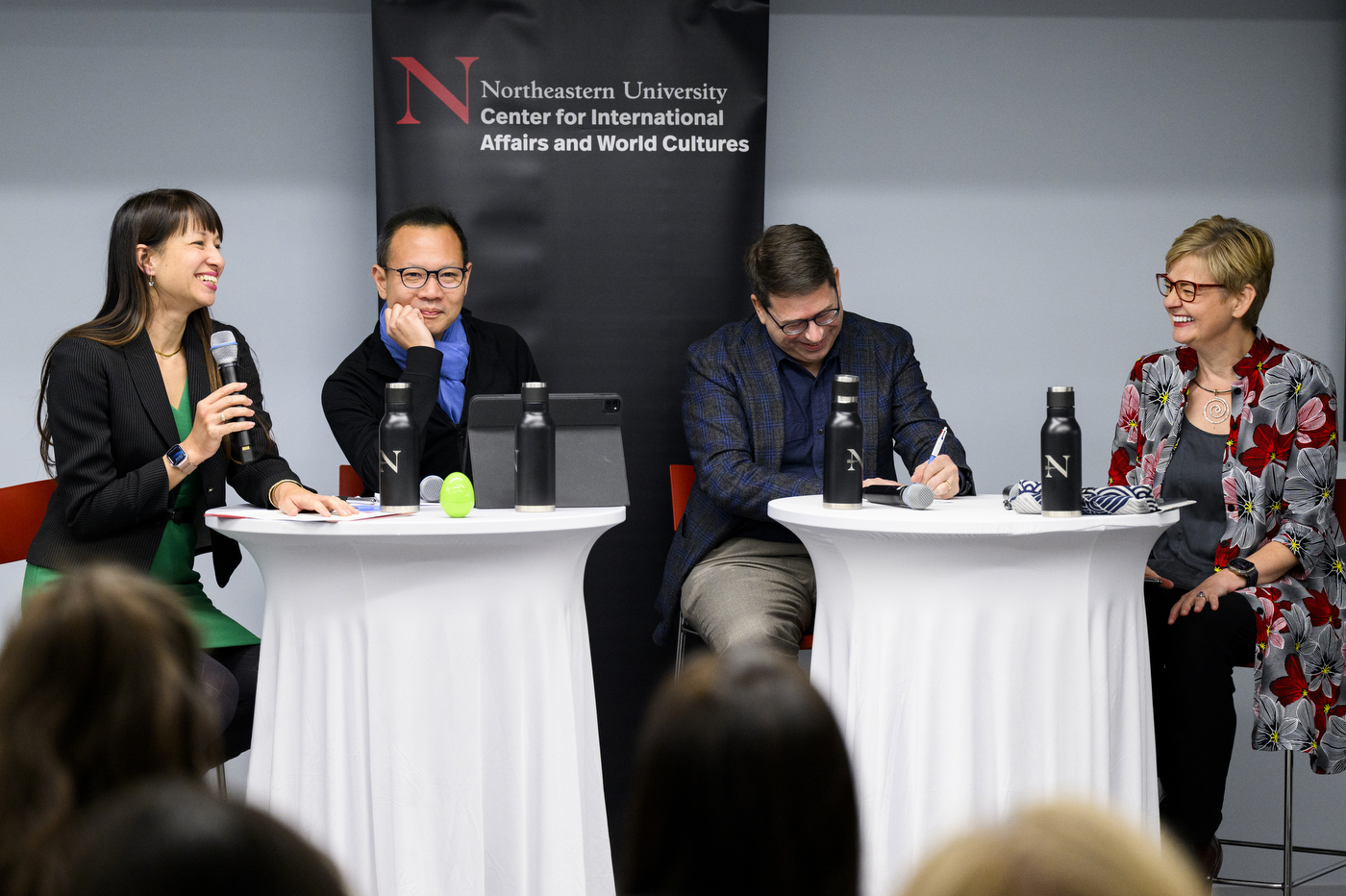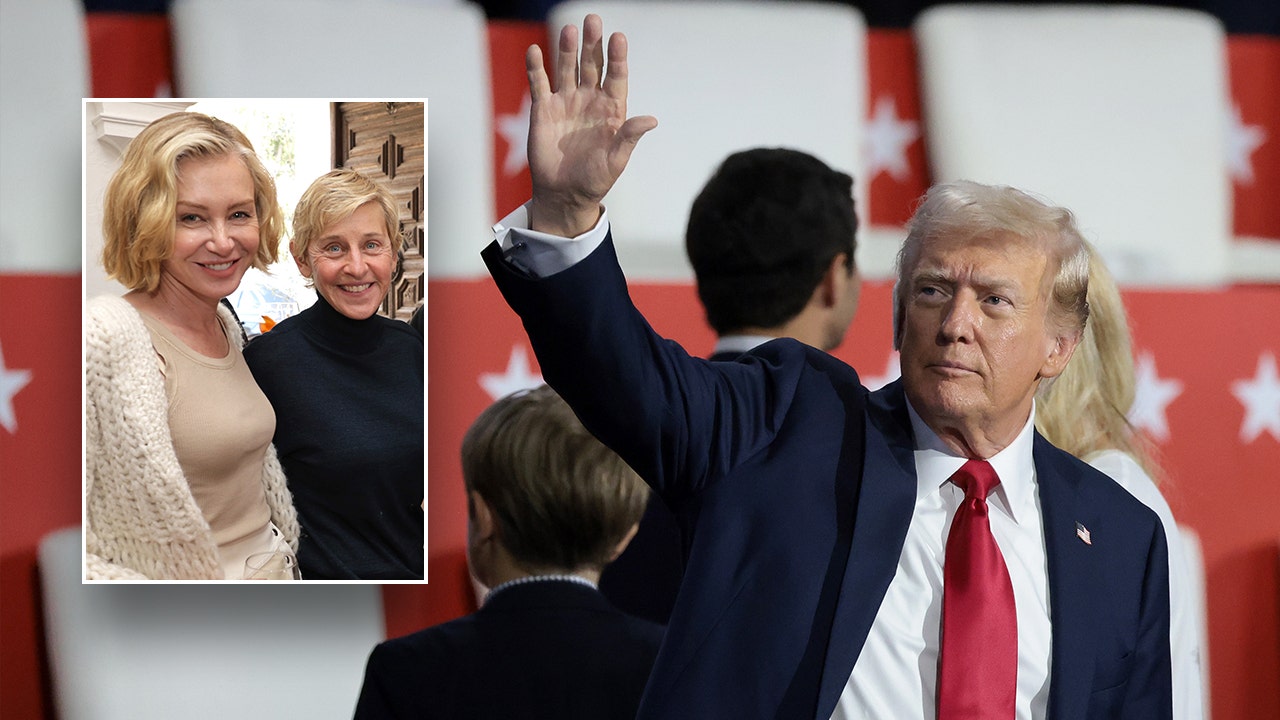World
Will China invade Taiwan? Could China achieve economic supremacy over the US? Experts weigh in on pressing global issues

“The State of the World Series really aims to kind of share expertise and have an in-depth discussion on some of the most pressing challenges that face in our world today,” said Mai’a Cross, professor at Northeastern.

The risk of war between China and its democratic neighbor Taiwan is “serious, but not inevitable,” says Dennis Kwok, a scholar-in-exile who is a visiting lecturer at Northeastern University.
Kwok served in Hong Kong’s Legislative Council from 2012 to 2020. In the midst of China’s crackdown on Hong Kong, Beijing disqualified Kwok from running in the 2020 Hong Kong legislative election. He was a founding member of the pro-democracy liberal Civic Party in 2006 that supported democracy, fundamental rights and the rule of law.
“When I was a lawmaker, I always told people that you should care about what happens to Hong Kong,” he said. “Because if Hong Kong falls, the next problem you’re going to have on your desk is Taiwan.”
Kwok said the next few years “are going to be really critical, in terms of deterrence.”
China was the entry point for a Center for International Affairs and World Cultures panel discussion on Northeastern’s Boston campus exploring “the state of the world.” The evening event was hosted by Mai’a Cross, dean’s professor of political science, international affairs and diplomacy.
“The State of the World Series really aims to kind of share expertise and have an in-depth discussion on some of the most pressing challenges that face in our world today,” Cross said.
Will China eclipse U.S. world economic superpower?
China’s continued efforts to overtake the United States in the world was also discussed.
“When you talk about foreign policy for China, the number one foreign policy issue is competition with the United States, and the international order currently led by the United States,” Kwok said.



“Together with their democratic alliances, you see everything from technology restrictions on China, to global cooperation in creating a sustainable supply chain that could decouple from China,” Kwok said. “And I think the important thing to understand about the current leadership under Chairman Xi is that, for him, everything has to be understood through the political lens, more so now than ever.”
It’s that political lens that led Beijing to intervene in Hong Kong in 2021, unilaterally overhauling its electoral system just as pro-democracy sentiment was starting to gain traction, he said.
The expression “all politics is local” was invoked several times throughout the discussion to emphasize the importance of elections in shaping larger phenomena.
Roughly a decade ago, Kwok said, the Chinese economy was on track to surpass the U.S. economy before it ran aground in recent years. Observers cite a slowdown in growth as a result of the COVID-19 pandemic and a real estate market crisis as reasons for the slump.
Kwok points to Beijing’s policies “killing private enterprises and sucking energy out of the domestic economy.”
“A lot of people are leaving China, a lot of money is leaving China, and foreign investors don’t feel comfortable investing in China,” Kwok said. “It’s all to do with the national security policy driven by Xi.”
For now, China won’t be overtaking the U.S., Kwok said.
“We know, the Chinese leaders know, the Chinese people know, that China is not going to overtake the United States anytime soon in its current trajectory,” he said.
Climate change looming in the background
Cross notes that geopolitical realities are playing out against the backdrop of “catastrophic climate change and biodiversity loss.” Enter Maria Ivanova, Northeastern’s director of the School of Public Policy and Urban Affairs, who has served in various international capacities as a leader on green energy.
In 2022, she served on the Rwandan delegation to the U.N. Environment Assembly, where she helped negotiate a resolution pushing for a global treaty on plastics.
Cross prompted Ivanova about her assessment of the United Nations: has the international body been able to accomplish anything on climate change?
“I am not only a believer in the U.N., but we have to look at the evidence: it is the only institution that has received 12 Nobel Peace Prizes,” Ivanova said.
Ivanova noted that, yes, all politics is local; “but all politics is global, too.”
“The security concept has stretched, and human security is what the Japanese government defines as the ability for humans to lead healthy and productive lives in harmony with nature,” Ivanova said. “And that shifts the space of security — in terms of military issues and economic issues — but how do we ensure that we live healthy and productive lives in harmony with nature. When we figure that out, the environment becomes the central issue.”
Can China play a productive role in beating back climate change? Kwok expressed pessimism.
“There is no such thing as a green dictatorship; there’s no such thing as a green authoritarian regime,” Kwok said. “An authoritarian regime or a dictatorship cares about one thing and one thing only, and that is how to stay in power.”









